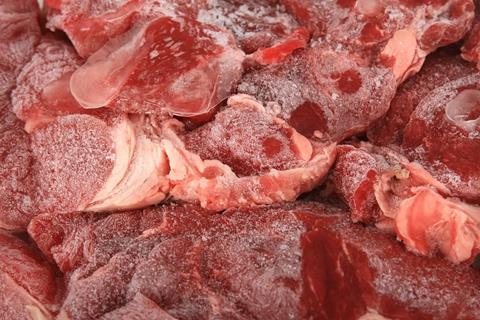Failing to reach a Brexit deal could cost food retailers and the supply chain £9.3 billion, with meat products facing duties of up to 129%.
The new Barclays report, Scale, Disruption and Brexit – a new dawn for UK food supply chains? shows that some products attract ‘specific duties’, which are tariffs levied on a per unit basis; that is, by weight or volume.

These duties appear to disproportionately target certain products including meat.
Hardest hit will be those products that attract both a category tariff as well as a specific duty tariff, such as frozen beef with a specific duty of 298%.
Common cooking products also face steep duties including live poultry at 129%, boneless fresh lamb cuts at 116% and beef cuts at 101%.
Fully processed meat will also face steep tariffs, with cooked beef preparation at 110% and processed chicken preparations at 109%.
While a free trade deal would help the food industry avoid tariffs and related duties, a no-deal Brexit could mean significantly higher costs for retailers and consumers.
Ian Gilmartin, head of retail at Barclays Corporate Banking, comments: “The food and drink industry is one of the country’s most important sectors, employing millions of people across the UK.
“For the good of both UK business and consumers, the potential impact on our producers and grocery retailers should be front and centre of Brexit negotiations.
“Some products would avoid tariffs, even in a no-deal scenario, but for most goods the effect of an increased tariff burden would be extremely damaging, and cheaper goods would be the hardest hit.
“71% of our imported food and drink comes from the EU, and 60% of our exports go to the EU. A positive agreement on trade is essential if we are to protect UK exporters and avoid significant price rises for UK consumers.”
This story was originally published on a previous version of the Meat Management website and so there may be some missing images and formatting issues.















